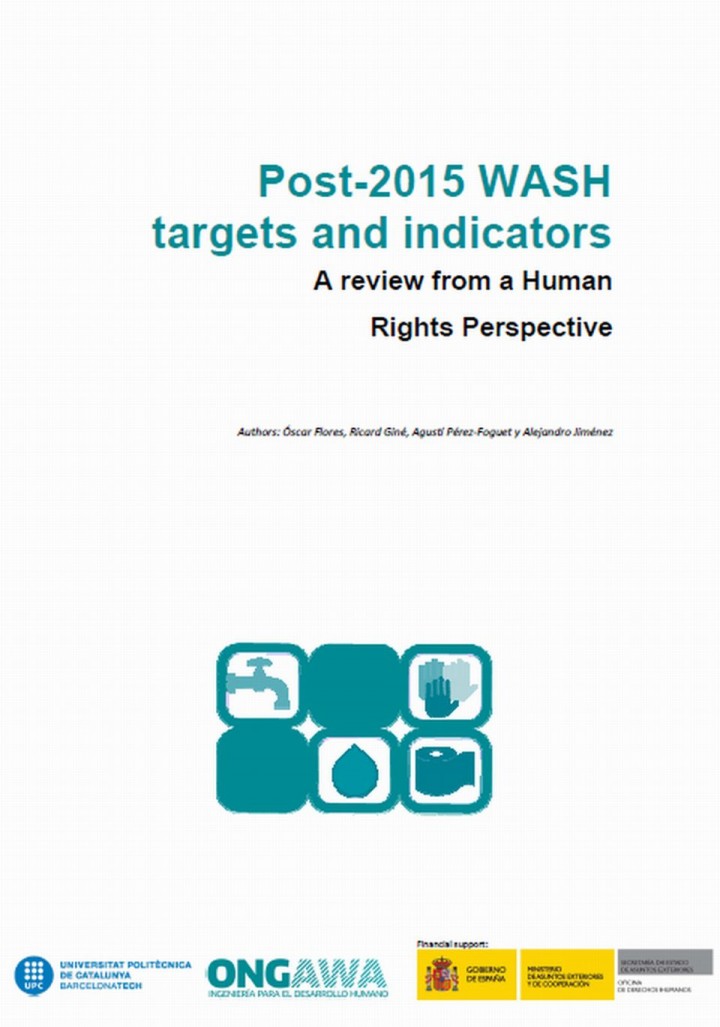Post-2015 WASH targets and indicators A review from a Human Rights Perspective Flores, O. et al. (2013)
Bibliographic information
Flores, O. et al. (2013). Post-2015 WASH targets and indicators A review from a Human Rights Perspective University Research Institute for Sustainability Science And Technology (IS.UPC). Universitat, Spain
Filter / Tags
English

